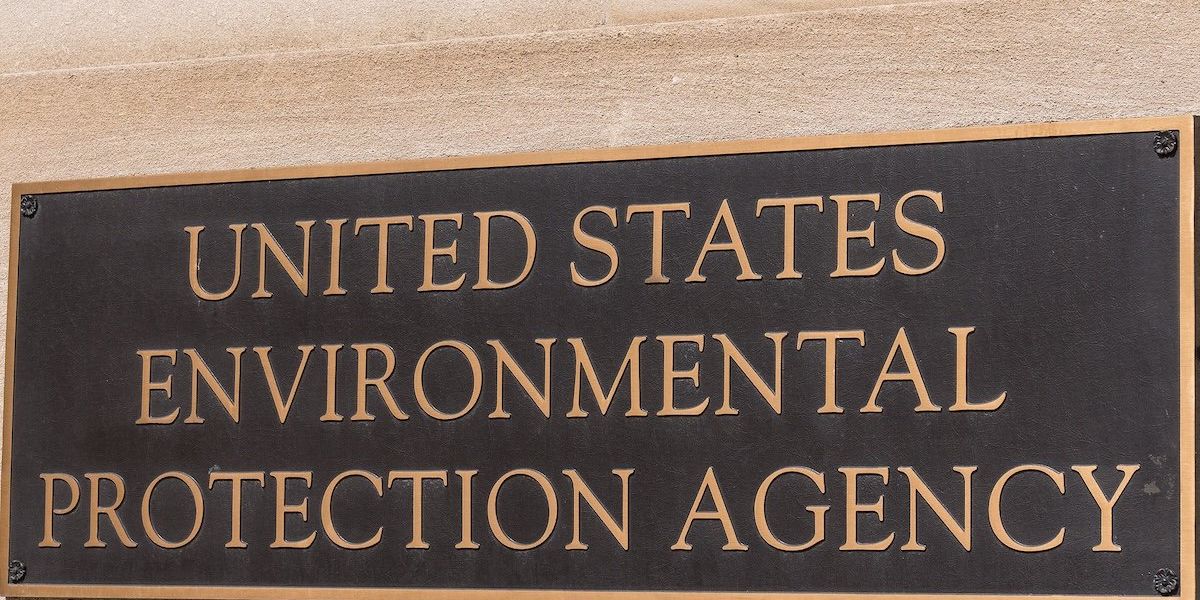green energy
Biden's green energy policies are expected to save lives and grow jobs, reports show
New reports suggest that President Biden's climate policies will save 200,000 lives by reducing pollution and have already added nearly 150,000 clean energy jobs in the U.S.
In short:
- Biden’s Inflation Reduction Act has led to 150,000 new clean energy jobs, with 3.5 million now working in the sector.
- Clean energy jobs grew 4.5% last year, outpacing U.S. employment growth, especially in energy efficiency, renewables, and electric vehicles.
- Trump's campaign promises to end clean energy incentives if elected, aiming to deregulate the energy sector.
Key quote:
"The biggest threats to this unprecedented progress are misguided efforts to repeal or roll back parts of the IRA."
— Bob O'Keefe, executive director of E2.
Why this matters:
Reducing pollution saves lives and improves public health. Clean energy job growth boosts the economy but faces potential reversal if Trump wins, risking pollution increases and economic setbacks in this sector.
Universities' ties to fossil fuel firms may stall climate progress, study warns
Fossil fuel companies' funding of university research is delaying the transition to green energy, according to a new peer-reviewed study that identifies hundreds of cases where these firms influenced academic work.
In short:
- Researchers reviewed thousands of studies on industry-funded academic research, finding that few examined fossil fuel companies' influence.
- Oil and gas companies have poured money into climate research while maintaining roles on advisory boards, potentially skewing the focus toward preserving fossil fuel interests.
- The study urges universities to disclose fossil fuel donors and suggests increased public funding to reduce reliance on these companies.
Key quote:
"We want to warn scholars and university leaders that they can be pawns in a propaganda scheme."
— Geoffrey Supran, University of Miami associate professor.
Why this matters:
Fossil fuel firms' influence on research risks compromising the integrity of climate science. Transparency and public funding could mitigate conflicts of interest and protect academic independence.
Related EHN coverage:
Pennsylvania trade unions push for clean energy jobs as the state transitions away from fossil fuels
A coalition of Pennsylvania unions has launched Union Energy to ensure that workers benefit from the state’s shift to clean energy while advocating for unionized jobs in emerging industries.
In short:
- Pennsylvania’s fossil fuel industry is shrinking, and clean energy jobs have yet to fully replace lost positions.
- Union Energy, led by the AFL-CIO, aims to secure good-quality union jobs in the clean energy sector.
- Training programs are also being created to help workers transition into new roles, such as cleaning up abandoned oil and gas wells.
Key quote:
“We want clean air, we want clean water, we want to be able to see our children and grandchildren run atound the earth like we did as children.”
— Angela Ferritto, president of Pennsylvania's AFL-CIO
Why this matters:
As Pennsylvania transitions to clean energy, ensuring that jobs are unionized and well-paid is crucial for workers' economic security. Collaboration between unions and environmental groups could accelerate this shift.
Related:
Fossil fuel ties exposed in Ohio solar opposition group
Testimony has revealed that an anti-solar group in Ohio, claiming to be grassroots, is heavily funded by a prominent figure in the natural gas industry.
In short:
- Jared Yost, leader of Knox Smart Development, admitted a major donor is linked to the natural gas industry.
- The group's funding contradicts its claims of being a local grassroots organization opposing solar energy projects.
- The case highlights how misinformation can be spread under the guise of community activism to oppose renewable energy.
Key quote:
“No one has ever tried to direct me in any way with my opposition to this project. I am nobody’s ‘puppet’.”
— Jared Yost, leader of Knox Smart Development
Why this matters:
The fossil fuel industry's covert funding of local opposition groups can mislead communities and hinder the adoption of renewable energy, posing challenges for the clean energy transition critical to addressing climate change.
Related:
Federal judge halts Arizona lithium drilling amid tribal concerns
A federal judge temporarily stopped exploratory lithium drilling in Arizona after the Hualapai Tribe argued it would harm sacred lands.
In short:
- The Hualapai Tribe and environmental groups sued to stop drilling near sacred springs in northwestern Arizona.
- The tribe argues the Bureau of Land Management's approval violated laws protecting historic and cultural sites.
- A hearing on a longer-term injunction is scheduled for September 17 in Phoenix.
Key quote:
“Like other tribal nations who for centuries have stewarded the lands across this country, the Hualapai people are under siege by mining interests trying to make a buck off destroying their cultural heritage.”
— Laura Berglan, Earthjustice lawyer
Why this matters:
The case highlights the conflict between green energy initiatives and the preservation of Indigenous cultural sites, raising questions about the balance between environmental progress and respecting sacred lands.
Related:
Alberta's energy 'war room' collapses amid new federal ad rules
Alberta's Canadian Energy Centre, created to counter green energy narratives, has shut down due to impending federal regulations on oil industry advertising.
In short:
- The Canadian Energy Centre, launched in 2019, aimed to rebut criticisms of Alberta's oil industry but faced multiple public embarrassments and credibility issues.
- Funded by oil and gas companies through Alberta's carbon pricing program, the Centre was required to register as a foreign agent in the U.S.
- New federal requirements for accuracy in oil advertising led to the Centre's abrupt closure before the regulations took effect.
Key quote:
“You’d have been forgiven for wondering if the sole mission of the [the war room] was to make every other government expenditure seem like a bargain.”
— Andrew Leach, Alberta Energy economist
Why this matters:
The closure highlights the growing impact of regulatory measures on misleading advertising and underscores the challenges Alberta faces in transitioning from fossil fuels to cleaner energy sources.
Related EHN coverage:
California faces challenges with hydrogen energy plan
Gov. Gavin Newsom's initiative to expand hydrogen as a renewable fuel in California is under scrutiny due to potential environmental risks.
In short:
- California is trying to boost its hydrogen fuel industry with significant federal support, despite concerns over increased emissions.
- The proposed state Senate Bill 1420 seeks to define clean hydrogen sources, but may still allow for pollution-heavy methods.
- Critics argue the plan may not effectively reduce overall emissions and could divert clean energy from other uses.
Key quote:
“If we want to move away from fossil fuels, we have to ask, ‘What is the alternative?’ It all points to renewable hydrogen.”
— Janice Lin, President, Green Hydrogen Coalition
Why this matters:
Hydrogen fuel, often lauded for its ability to power vehicles and industries without emitting carbon at the point of use, holds promise for significant reductions in greenhouse gas emissions. Despite the environmental benefits touted, the production of hydrogen, especially through methods that rely on natural gas, can lead to increased emissions of methane and other pollutants unless carefully managed. This aspect of hydrogen fuel production has sparked a debate about whether the technology will indeed lead to a net reduction in emissions or merely shift the problem elsewhere.



















